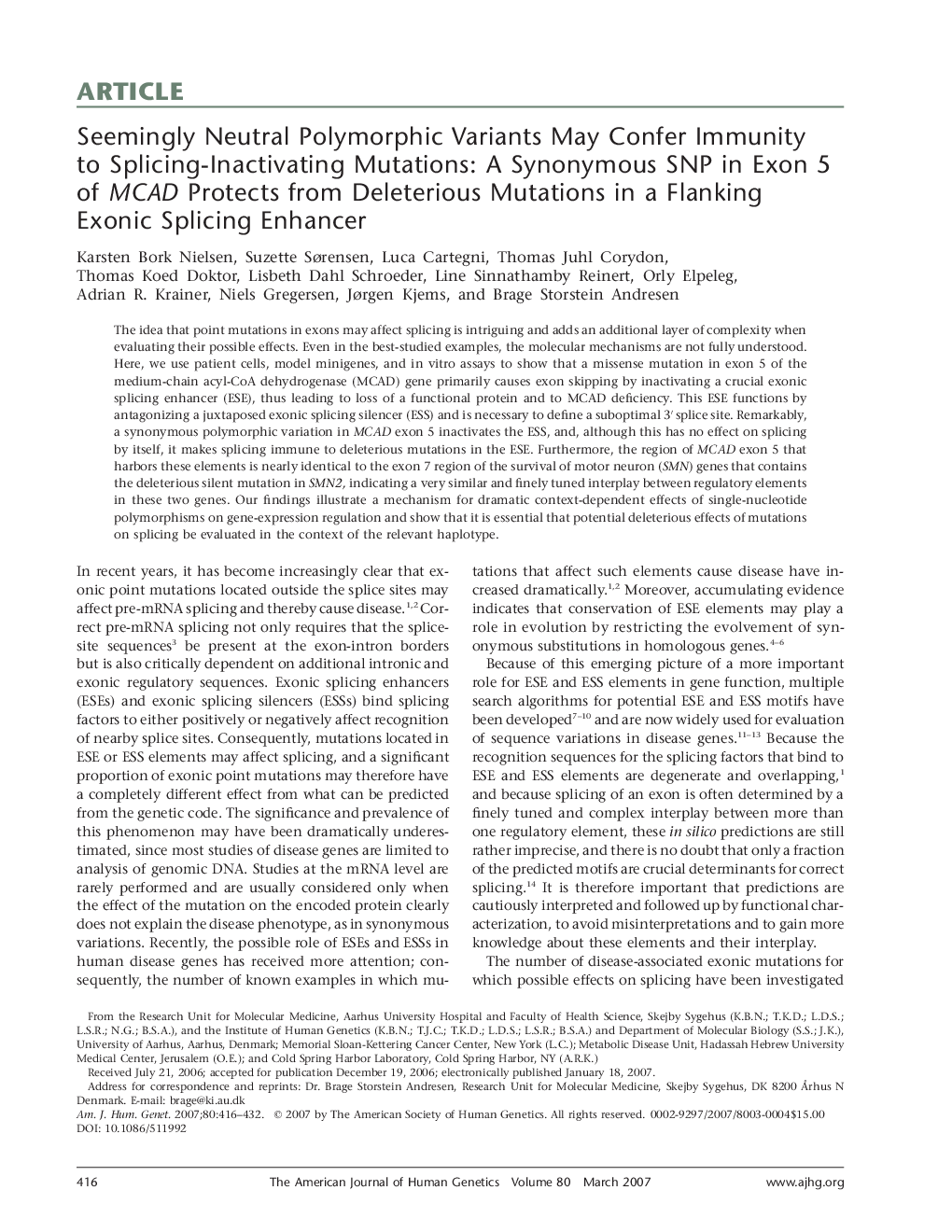| Article ID | Journal | Published Year | Pages | File Type |
|---|---|---|---|---|
| 2812329 | The American Journal of Human Genetics | 2007 | 17 Pages |
The idea that point mutations in exons may affect splicing is intriguing and adds an additional layer of complexity when evaluating their possible effects. Even in the best-studied examples, the molecular mechanisms are not fully understood. Here, we use patient cells, model minigenes, and in vitro assays to show that a missense mutation in exon 5 of the medium-chain acyl-CoA dehydrogenase (MCAD) gene primarily causes exon skipping by inactivating a crucial exonic splicing enhancer (ESE), thus leading to loss of a functional protein and to MCAD deficiency. This ESE functions by antagonizing a juxtaposed exonic splicing silencer (ESS) and is necessary to define a suboptimal 3′ splice site. Remarkably, a synonymous polymorphic variation in MCAD exon 5 inactivates the ESS, and, although this has no effect on splicing by itself, it makes splicing immune to deleterious mutations in the ESE. Furthermore, the region of MCAD exon 5 that harbors these elements is nearly identical to the exon 7 region of the survival of motor neuron (SMN) genes that contains the deleterious silent mutation in SMN2, indicating a very similar and finely tuned interplay between regulatory elements in these two genes. Our findings illustrate a mechanism for dramatic context-dependent effects of single-nucleotide polymorphisms on gene-expression regulation and show that it is essential that potential deleterious effects of mutations on splicing be evaluated in the context of the relevant haplotype.
